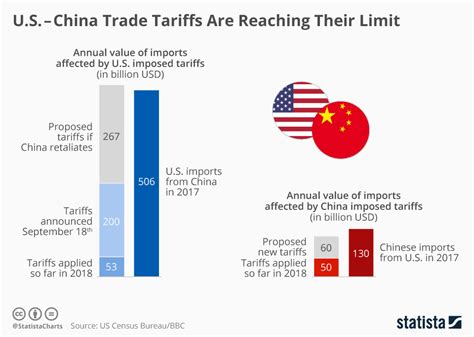
White supremacist Nick Fuentes has declared victory for his “Groypers” following a recent outburst against Turning Point USA (TPUSA) and its founder, Charlie Kirk, triggered by the organization’s ban of individuals associated with Fuentes from its MAGA event. Fuentes characterized the ban and subsequent online furor as a win for his movement, claiming it exposed what he perceives as hypocrisy and weakness within mainstream conservative circles.
Nick Fuentes, a known white supremacist and political commentator, is claiming victory for his “Groypers” after a ban imposed by Turning Point USA (TPUSA) at a recent MAGA event sparked a heated online backlash and a personal tirade from Fuentes himself. Fuentes views the situation as a successful demonstration of his movement’s influence, asserting that it has exposed hypocrisy and vulnerabilities within mainstream conservative circles, particularly regarding issues of race, identity, and the direction of the Republican party. The incident underscores the ongoing tensions between traditional conservative factions and the far-right, highlighting the complexities of navigating ideological divides within the broader conservative movement.
Fuentes’s outburst and subsequent declaration of victory stem from TPUSA’s decision to ban individuals affiliated with him from attending their recent MAGA event. This ban, ostensibly enacted to maintain a specific image and message at the event, ignited a firestorm of controversy online, drawing attention to Fuentes and his followers, known as “Groypers.” The Groypers, a loosely organized group of young white nationalists, are known for their provocative online tactics, which often involve targeting conservative figures and organizations they deem insufficiently supportive of white identity politics.
The core issue revolves around the definition of “conservative” and the boundaries of acceptable discourse within conservative circles. Figures like Fuentes actively seek to push those boundaries, injecting their ideologies into mainstream political discussions. Their tactics often involve deliberately controversial statements and actions designed to provoke a response and garner attention. In this instance, the ban served as a catalyst, providing Fuentes with an opportunity to frame himself as an outsider challenging the status quo and to rally his supporters around a perceived injustice.
Fuentes characterized the ban as evidence that TPUSA and figures like Charlie Kirk are unwilling to engage in substantive debates about critical issues facing the country. He argues that TPUSA’s actions are indicative of a broader trend within mainstream conservatism – a tendency to avoid difficult conversations about race, immigration, and cultural identity. By positioning himself as the victim of censorship and ideological exclusion, Fuentes aims to appeal to individuals who feel marginalized or disenfranchised by the mainstream conservative movement.
“We won,” Fuentes reportedly stated, according to various online sources and media outlets monitoring his online activity. “They banned us, and now everyone is talking about us. They showed their true colors – they’re afraid of us because we’re right.” This declaration encapsulates Fuentes’s perspective on the situation. He believes that the controversy generated by the ban has ultimately benefited his movement by raising its profile and exposing what he considers to be the moral and intellectual bankruptcy of mainstream conservatism.
The controversy also highlights the challenges faced by organizations like TPUSA in managing their public image and maintaining control over the narrative surrounding their events. By banning individuals associated with Fuentes, TPUSA hoped to avoid associating itself with his controversial views. However, the ban inadvertently amplified Fuentes’s message, providing him with a platform to criticize TPUSA and to present himself as a victim of censorship.
The incident underscores the complex dynamics at play within the broader conservative movement. While organizations like TPUSA seek to promote a more mainstream and inclusive vision of conservatism, figures like Fuentes actively challenge those efforts by pushing the boundaries of acceptable discourse and promoting ideologies that are widely considered to be racist and exclusionary. The ongoing tension between these competing factions highlights the challenges of defining and maintaining a cohesive conservative identity in an increasingly polarized political landscape.
Furthermore, the incident serves as a reminder of the power of online activism and the ability of fringe groups to leverage social media platforms to amplify their messages and influence public opinion. Fuentes and his followers have demonstrated a keen understanding of how to use online platforms to generate controversy, provoke responses, and ultimately advance their agenda. Their success in this regard raises important questions about the role of social media companies in regulating hate speech and preventing the spread of extremist ideologies.
The situation also raises concerns about the potential for radicalization and the allure of extremist ideologies for young people. Fuentes’s “Groypers” are primarily composed of young, white men who are drawn to his message of white identity politics and cultural grievance. The appeal of such ideologies to young people underscores the need for effective counter-messaging strategies and educational programs that promote tolerance, diversity, and critical thinking skills.
In conclusion, the controversy surrounding TPUSA’s ban of individuals associated with Nick Fuentes represents more than just a minor skirmish within the conservative movement. It is a reflection of deeper ideological divisions, a demonstration of the power of online activism, and a reminder of the ongoing threat posed by extremist ideologies. The incident serves as a call to action for organizations, educators, and policymakers to address the root causes of radicalization and to promote a more inclusive and tolerant society.
The incident’s impact extends beyond the immediate participants, raising broader questions about the future of the conservative movement and the role of extremist ideologies in American politics. As the Republican party continues to grapple with internal divisions and shifting demographics, the influence of figures like Fuentes and his followers will likely remain a source of contention and concern. The ability of mainstream conservative organizations to effectively counter the appeal of extremist ideologies will be crucial in shaping the future of the party and the direction of American politics.
The controversy also highlights the importance of media literacy and the ability to critically evaluate information sources. In an era of widespread misinformation and disinformation, it is essential for individuals to be able to distinguish between credible news sources and biased or unreliable outlets. The incident surrounding Fuentes and TPUSA underscores the need for individuals to be vigilant in their consumption of news and to seek out diverse perspectives on complex issues.
The situation also emphasizes the ethical responsibilities of journalists and media outlets in covering controversial figures and movements. While it is important to report on the activities of individuals like Fuentes, it is equally important to avoid amplifying their messages or providing them with a platform to spread their hateful ideologies. Journalists must carefully consider the potential impact of their reporting and strive to provide accurate and balanced coverage that informs the public without legitimizing extremist views.
The incident underscores the need for ongoing dialogue and engagement across ideological divides. While it may be tempting to simply dismiss or ignore figures like Fuentes, such an approach is unlikely to be effective in the long run. Instead, it is essential to engage in respectful and constructive conversations with individuals who hold different views, even if those views are deeply offensive or controversial. Such dialogue can help to break down stereotypes, challenge assumptions, and ultimately promote greater understanding and tolerance.
The situation also highlights the importance of supporting organizations and initiatives that are working to combat hate speech and promote inclusivity. There are numerous organizations dedicated to fighting racism, anti-Semitism, and other forms of discrimination. By supporting these organizations, individuals can help to create a more just and equitable society.
The controversy surrounding Fuentes and TPUSA serves as a reminder that the fight against extremism is an ongoing process. There is no easy solution to the problem of hate speech and radicalization. However, by working together, individuals, organizations, and policymakers can make progress towards creating a more tolerant and inclusive society where extremist ideologies have no place.
The ramifications of this incident extend to the broader political climate, particularly concerning the rise of right-wing extremism and its impact on democratic institutions. The ability of figures like Fuentes to attract followers and influence political discourse underscores the need for continued vigilance and proactive measures to counter the spread of extremist ideologies. This includes not only addressing the symptoms of extremism but also tackling the underlying social and economic factors that contribute to its appeal.
The incident also raises questions about the role of political parties in addressing extremism within their ranks. The Republican party, in particular, has faced criticism for its perceived reluctance to condemn extremist views and disavow individuals associated with extremist movements. A more forceful and consistent stance against extremism by political parties is essential to ensure that such ideologies are not normalized or legitimized within the mainstream political arena.
The long-term consequences of this incident and similar events could be significant, potentially contributing to increased political polarization, social unrest, and even violence. It is therefore imperative that individuals, communities, and governments take seriously the threat posed by extremism and work together to create a more resilient and inclusive society that is resistant to the appeal of hate and intolerance.
Fuentes’s tactics, including his use of irony and satire, make it difficult to directly confront his ideas, as his supporters often claim he is merely joking or being provocative. This defense mechanism makes it harder to challenge his underlying message and hold him accountable for the potential harm it causes. This ambiguity allows him to subtly introduce extremist ideas into the mainstream, where they can gain traction and influence.
Furthermore, the attention Fuentes receives, even negative attention, serves to normalize his views and increase his visibility. This phenomenon, known as the “Streisand effect,” highlights the difficulty of silencing or marginalizing controversial figures in the digital age. The more attention Fuentes receives, the more opportunities he has to spread his message and recruit new followers.
The incident also underscores the need for improved media literacy education, particularly among young people. Many young people are not equipped to critically evaluate online information and are therefore vulnerable to manipulation and propaganda. By teaching young people how to identify misinformation, fact-check claims, and recognize bias, we can help them become more discerning consumers of information and less susceptible to extremist ideologies.
The challenge of addressing extremism is compounded by the anonymity and lack of accountability that characterize much of online communication. Extremist groups often operate in closed online forums and social media groups, where they can spread their messages without fear of detection or reprisal. This anonymity makes it difficult to identify and disrupt extremist networks and hold individuals accountable for their online behavior.
In conclusion, the incident involving Nick Fuentes and Turning Point USA serves as a microcosm of the broader challenges facing American society in the fight against extremism. The incident highlights the need for a multi-faceted approach that includes education, media literacy, law enforcement, and community engagement. By working together, we can create a more resilient and inclusive society that is resistant to the appeal of hate and intolerance. The future of American democracy may depend on it. The normalization of extremist ideologies, even under the guise of humor or satire, poses a serious threat to the values of equality, diversity, and inclusion that underpin our society. It is therefore essential that we remain vigilant and proactive in countering the spread of hate and intolerance in all its forms.
The controversy also exposes the fragility of the alliance between different factions within the conservative movement. While these factions may share some common goals, they often differ significantly on issues of race, identity, and cultural values. These differences can create tensions and divisions that make it difficult for the conservative movement to present a united front on key issues.
The incident also raises questions about the role of wealthy donors and foundations in supporting conservative organizations and think tanks. Some critics argue that these donors may be inadvertently supporting extremist ideologies by funding organizations that are sympathetic to or unwilling to condemn extremist views. This raises concerns about the accountability of donors and the need for greater transparency in the funding of conservative organizations.
In conclusion, the incident involving Nick Fuentes and Turning Point USA is a complex and multifaceted issue that has implications for the future of the conservative movement and the broader political landscape. The incident highlights the need for a comprehensive and coordinated response to the threat of extremism that involves individuals, organizations, and governments working together to create a more tolerant and inclusive society. The stakes are high, and the future of American democracy may depend on our ability to effectively counter the spread of hate and intolerance.
Frequently Asked Questions (FAQ):
1. Who is Nick Fuentes?
Nick Fuentes is a white supremacist and political commentator known for his far-right, white nationalist views. He leads a group of followers known as “Groypers” and is a prominent figure in the alt-right movement. Fuentes has been widely criticized for his racist, anti-Semitic, and anti-immigrant rhetoric. He utilizes online platforms to disseminate his views and organize his followers, often employing provocative tactics to gain attention and influence.
2. What are “Groypers”?
“Groypers” are a loosely organized group of young, primarily white, followers of Nick Fuentes. They are known for their online activism, which often involves targeting conservative figures and organizations they deem insufficiently supportive of white identity politics. Groypers engage in tactics such as “ask-me-anything” (AMA) sessions with conservative speakers, where they bombard them with questions designed to expose perceived hypocrisy or weakness on issues of race, immigration, and cultural identity. Their goal is to push the boundaries of acceptable discourse within conservative circles and inject their ideologies into the mainstream.
3. What is Turning Point USA (TPUSA)?
Turning Point USA (TPUSA) is a conservative student organization founded by Charlie Kirk. It aims to promote conservative values on college campuses and in high schools. TPUSA organizes events, conferences, and outreach programs to engage young people and advocate for limited government, free markets, and individual liberty. The organization has faced criticism for its conservative stance on various social and political issues.
4. Why did TPUSA ban individuals associated with Nick Fuentes from their MAGA event?
TPUSA likely banned individuals associated with Nick Fuentes from their MAGA event to distance themselves from his controversial and extremist views. Organizations like TPUSA often seek to maintain a specific image and message, and associating with figures like Fuentes could damage their reputation and alienate their supporters. The ban was an attempt to control the narrative surrounding the event and prevent it from being overshadowed by Fuentes’s divisive rhetoric.
5. What is the significance of Fuentes claiming “victory” after the ban?
Fuentes’s claim of “victory” reflects his belief that the controversy surrounding the ban has ultimately benefited his movement by raising its profile and exposing what he considers to be the moral and intellectual bankruptcy of mainstream conservatism. He argues that the ban demonstrated TPUSA’s unwillingness to engage in substantive debates about critical issues and that it validated his claim that mainstream conservatives are afraid of his ideas. By framing himself as a victim of censorship and ideological exclusion, Fuentes aims to appeal to individuals who feel marginalized or disenfranchised by the mainstream conservative movement. His claim of victory is a strategic attempt to rally his supporters and solidify his position within the far-right.









